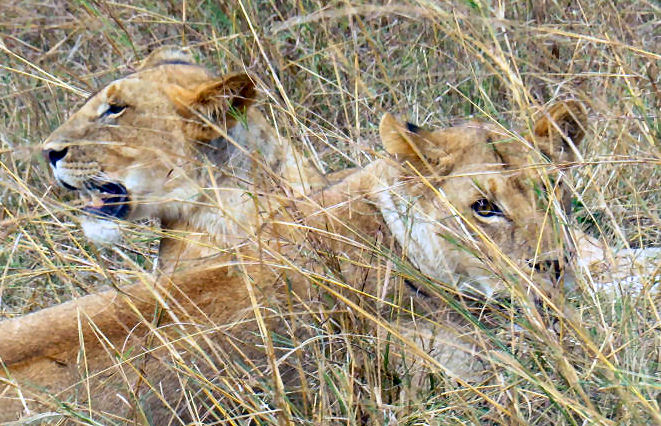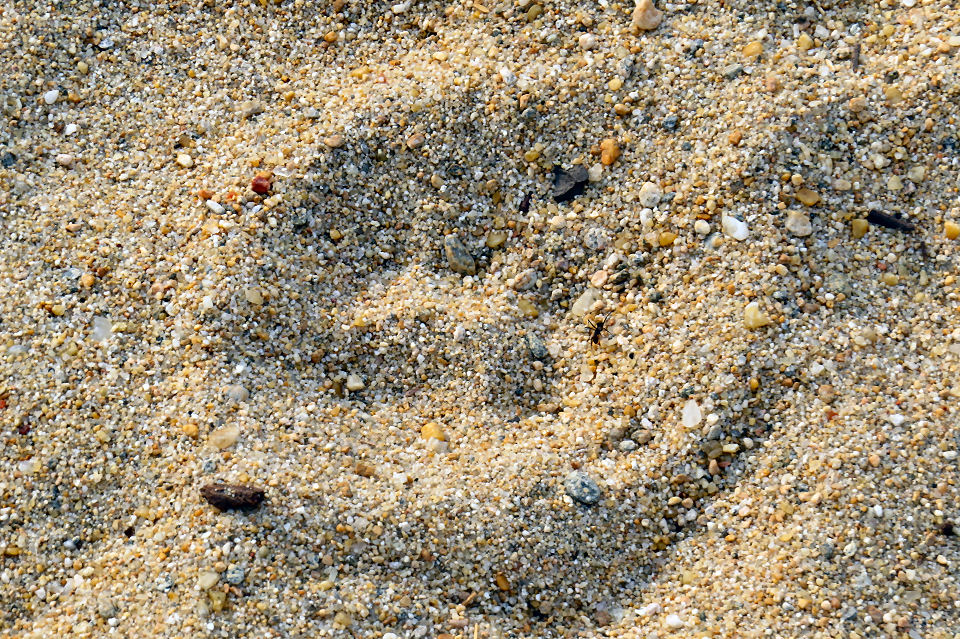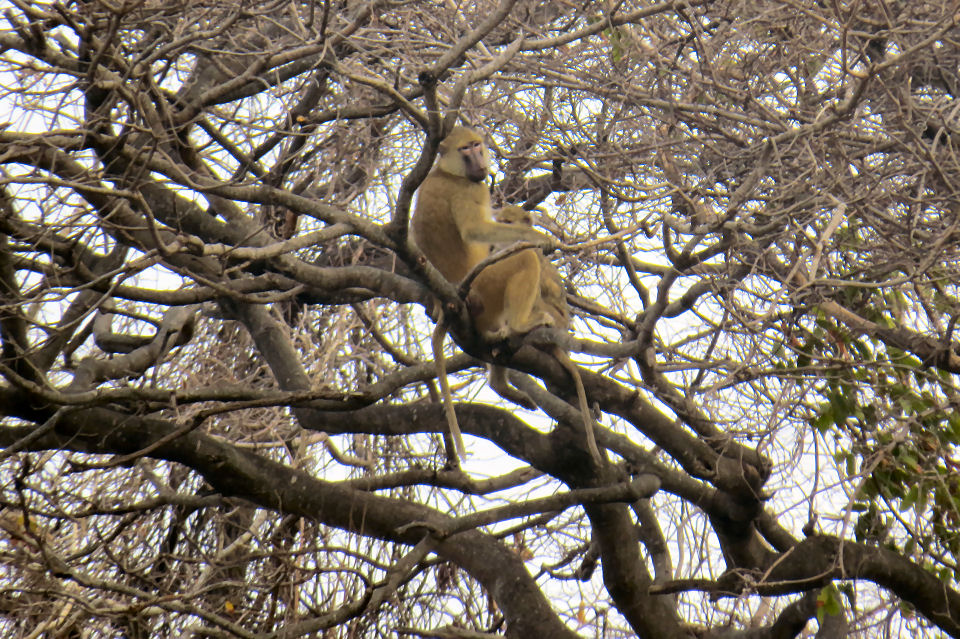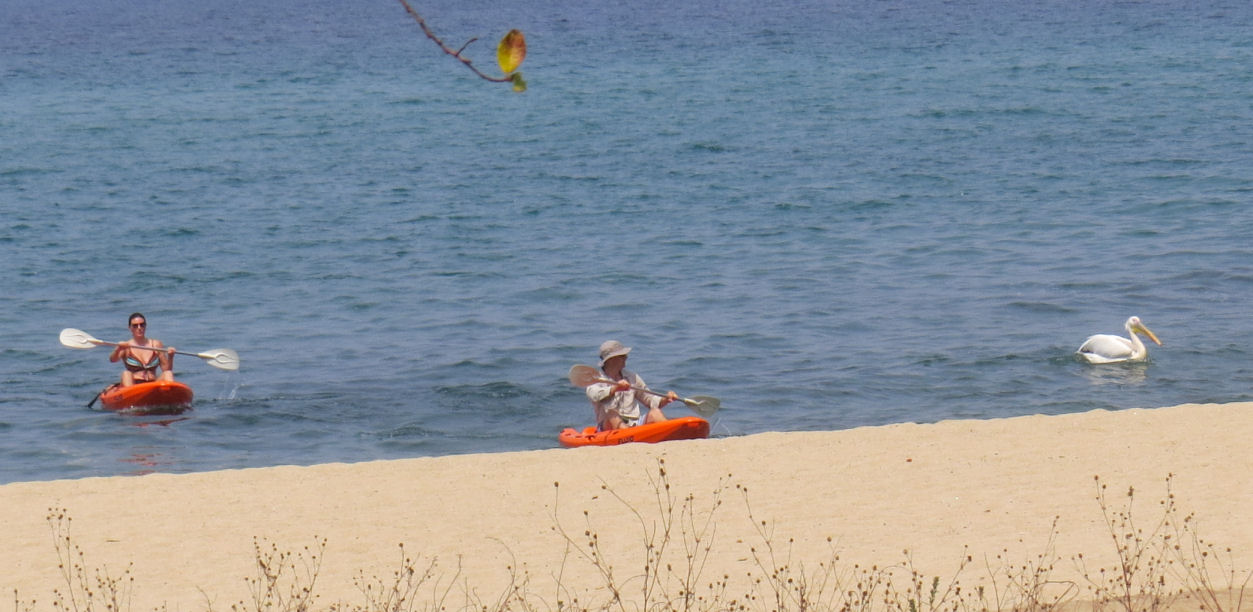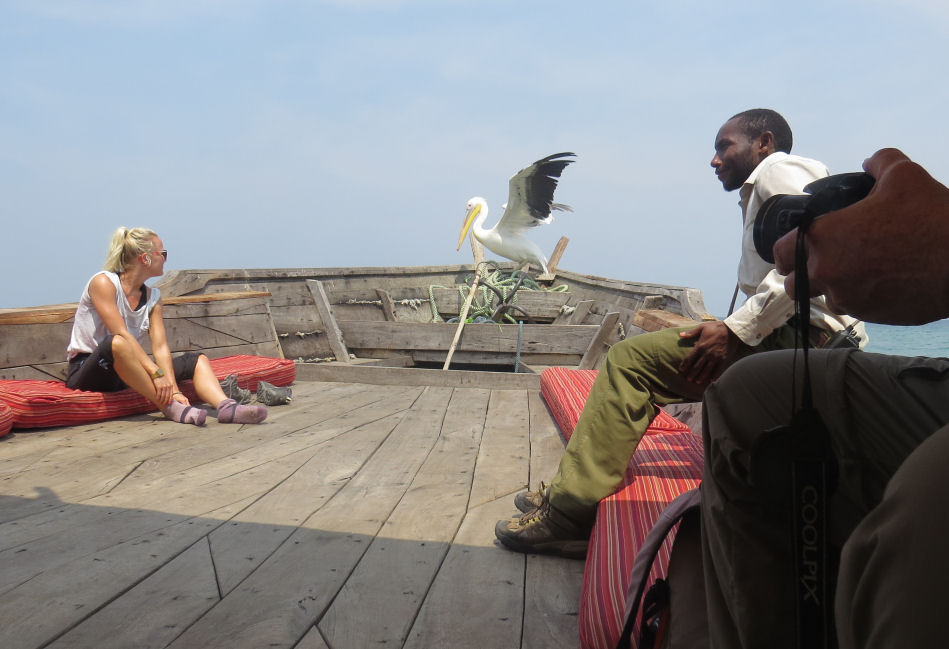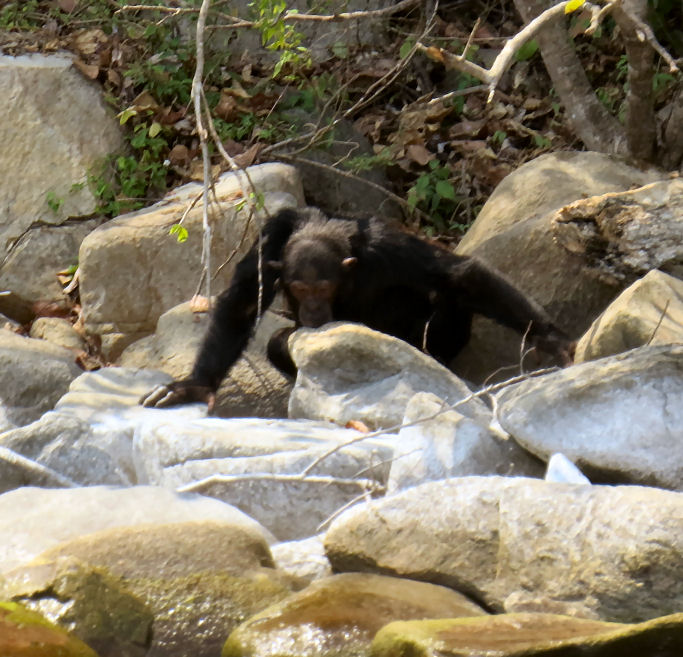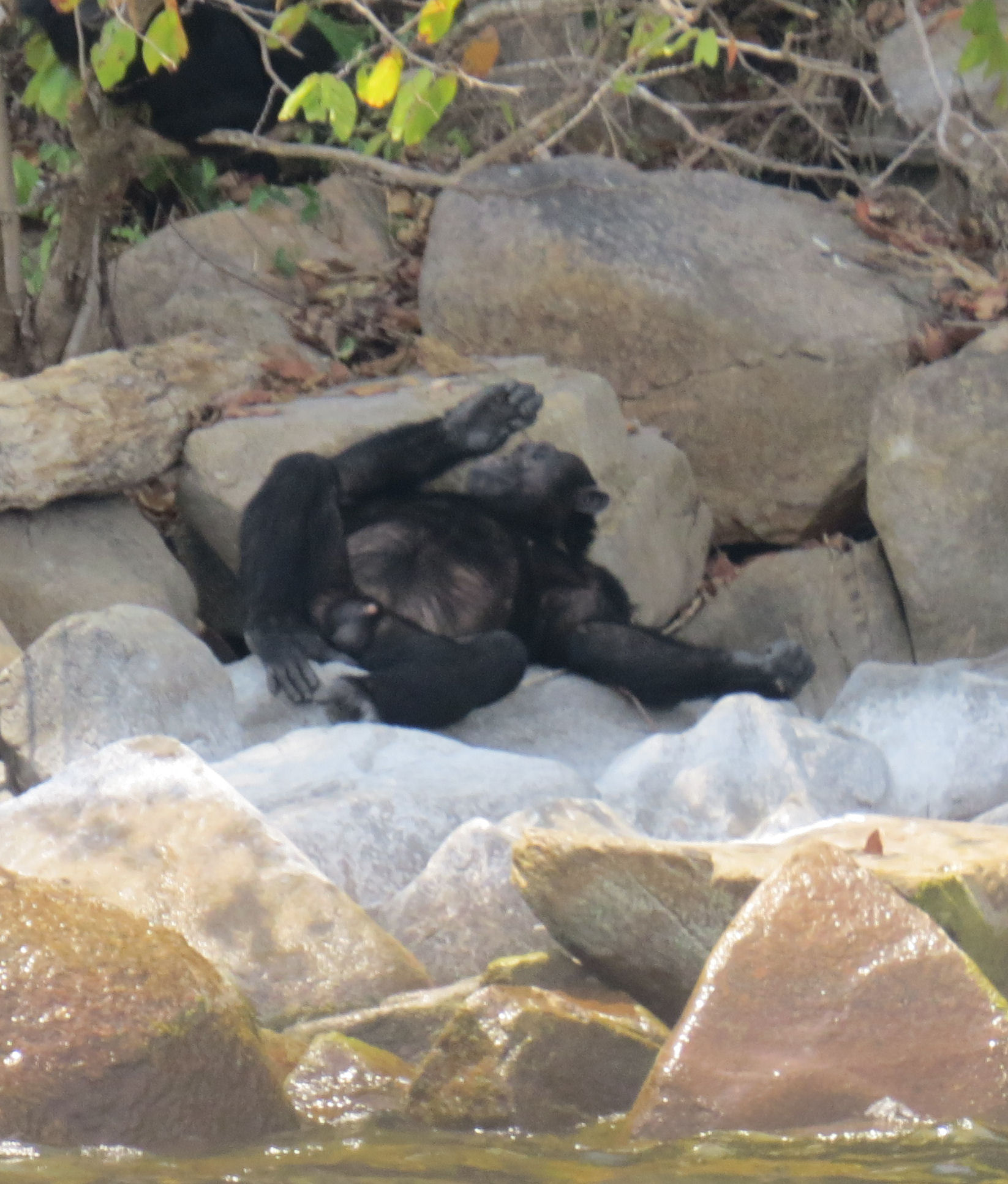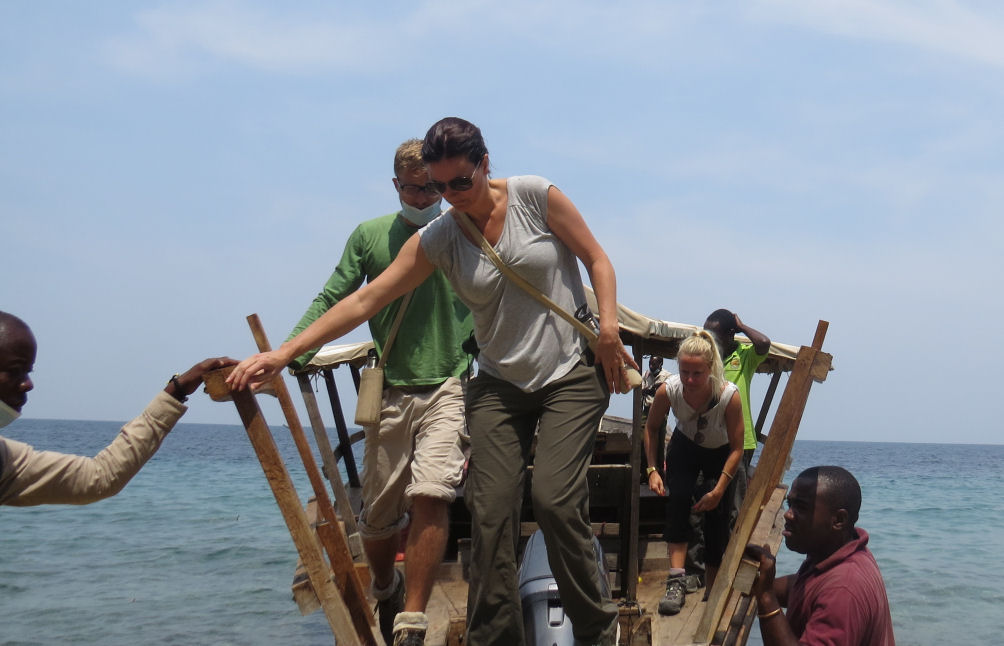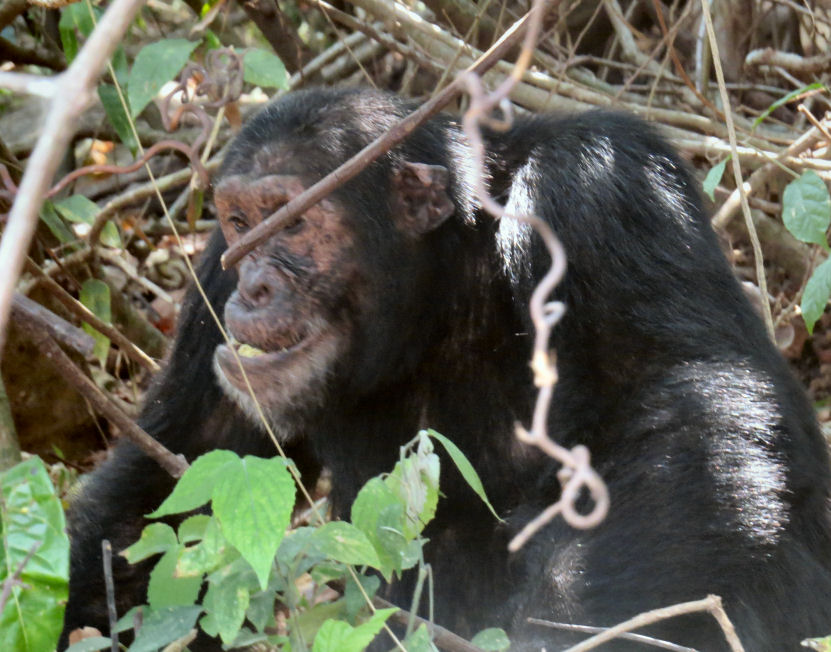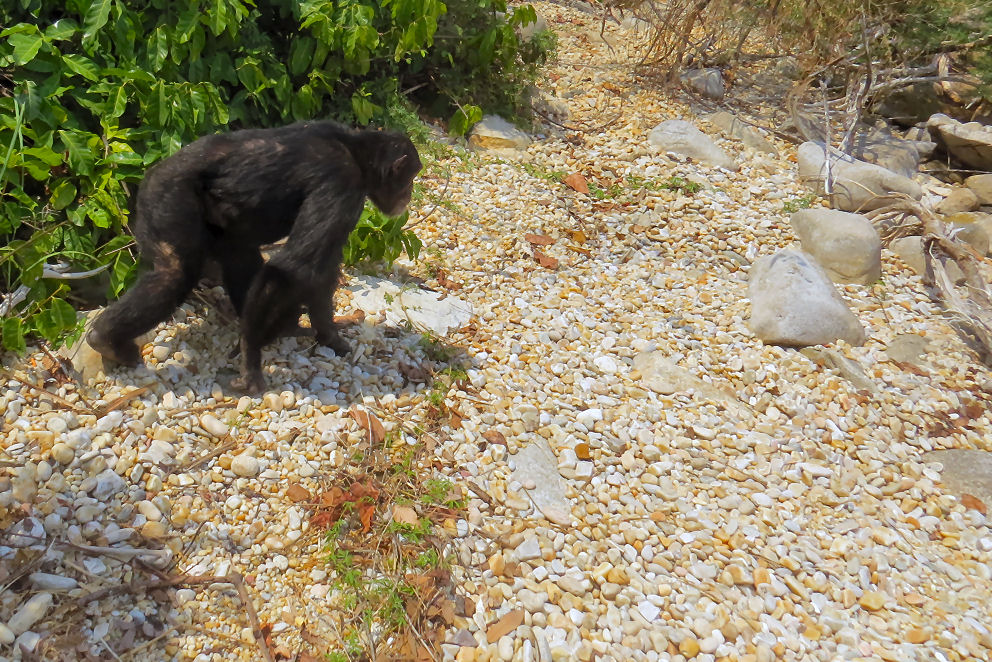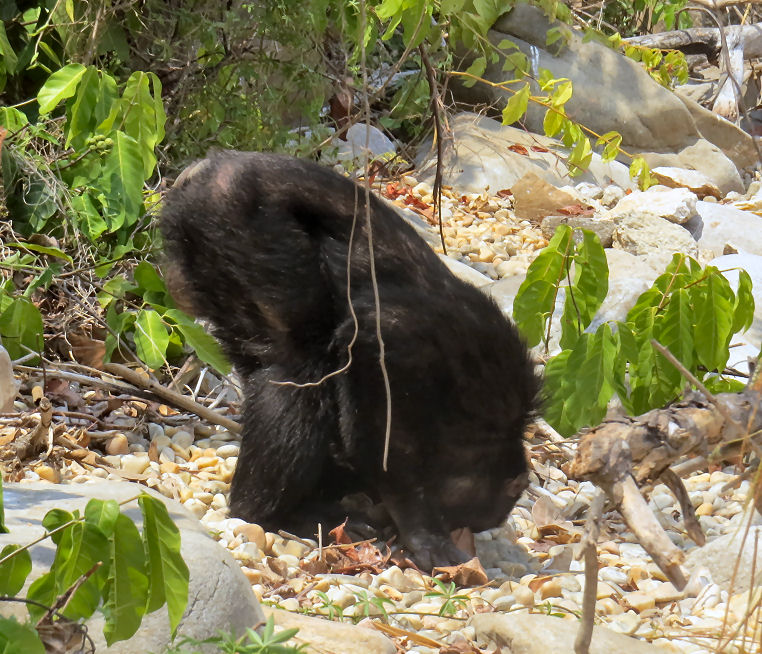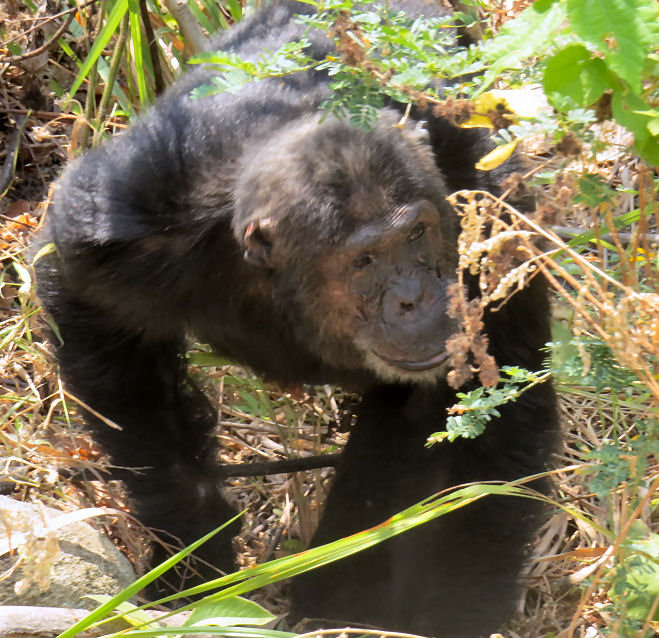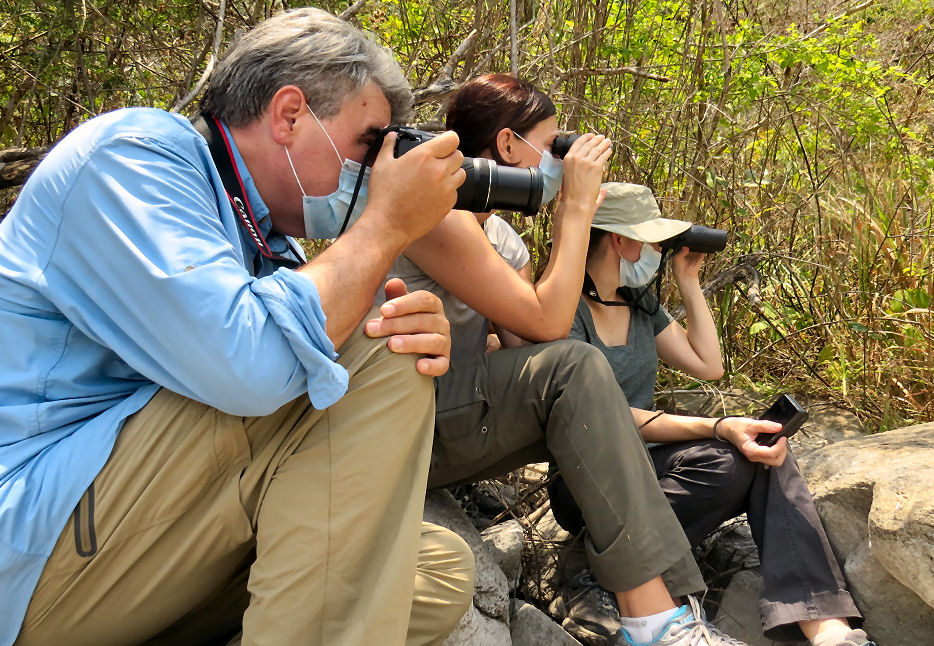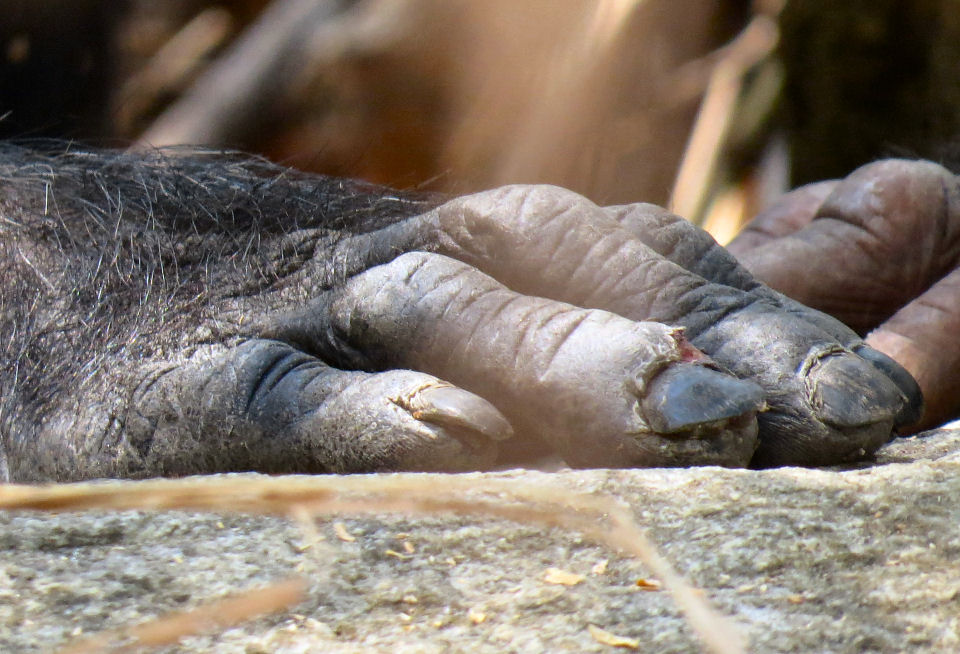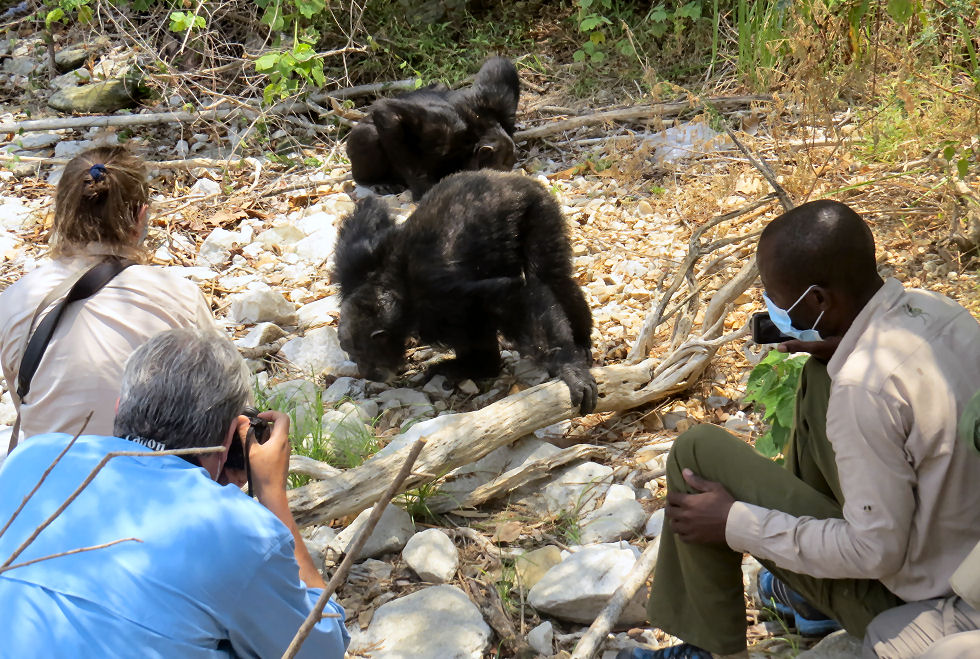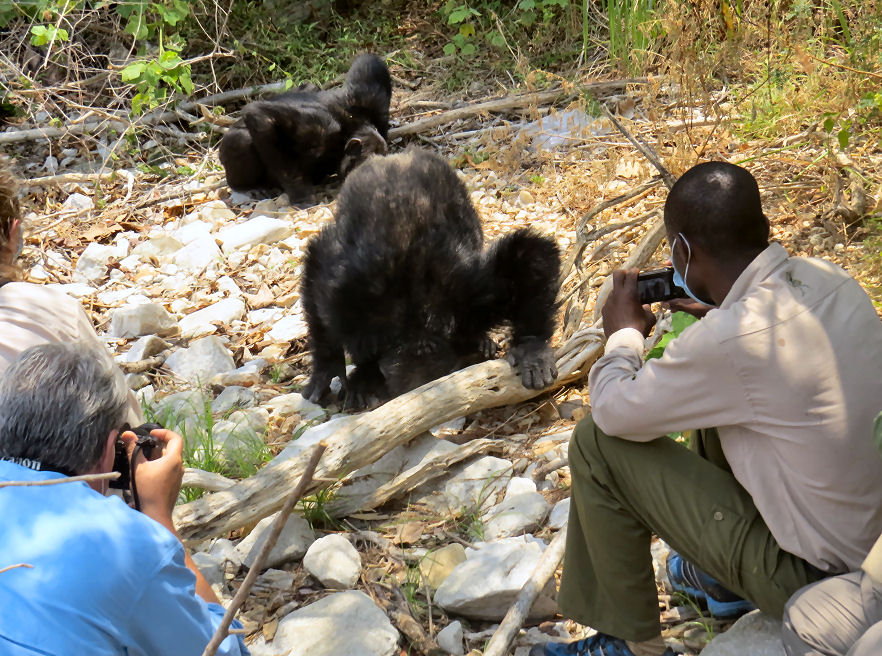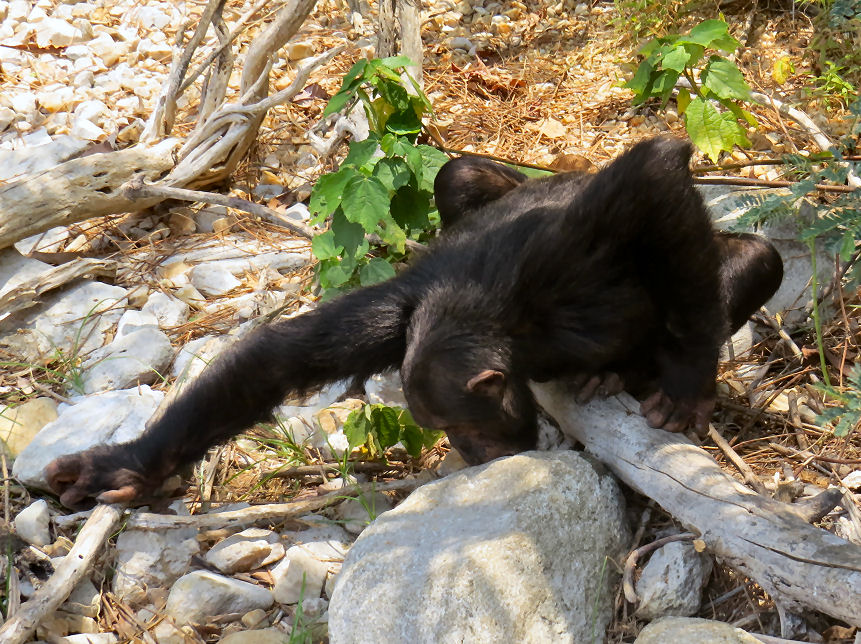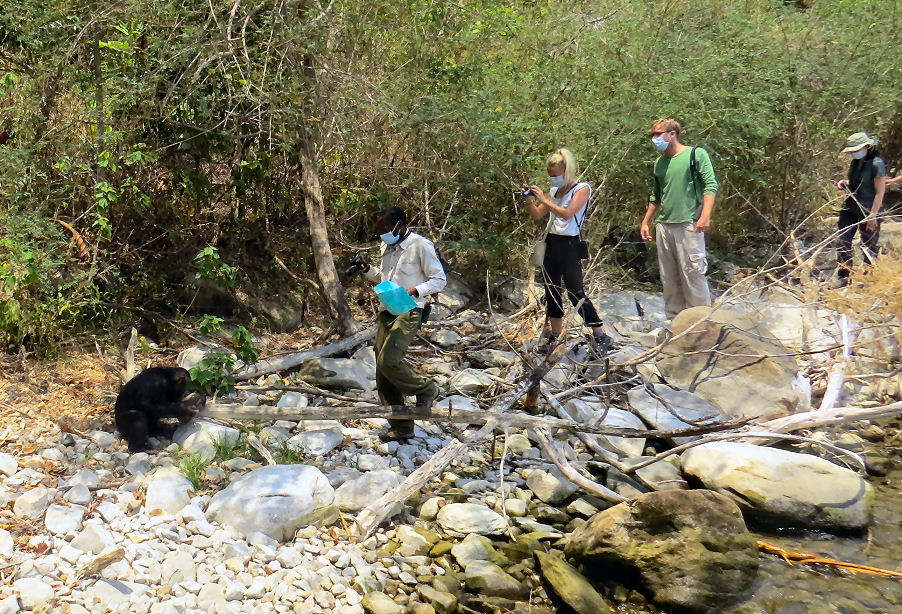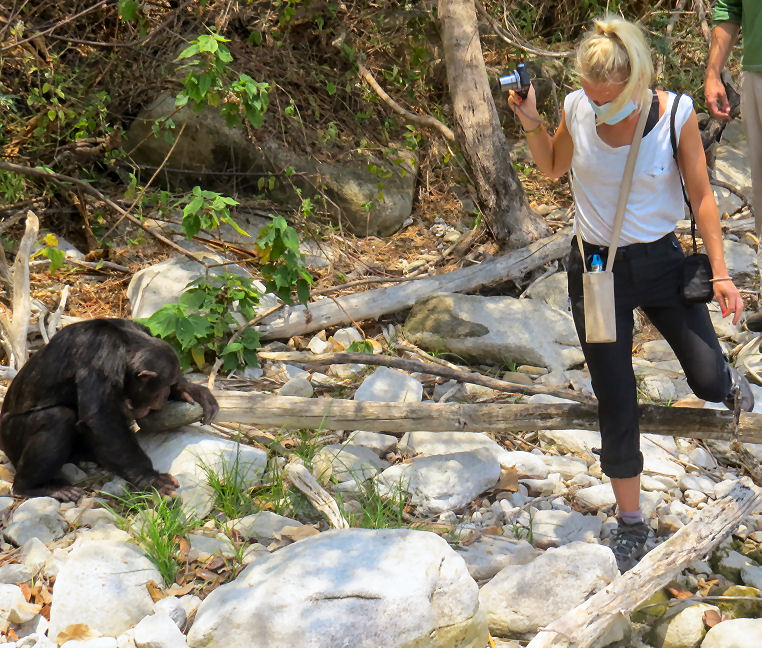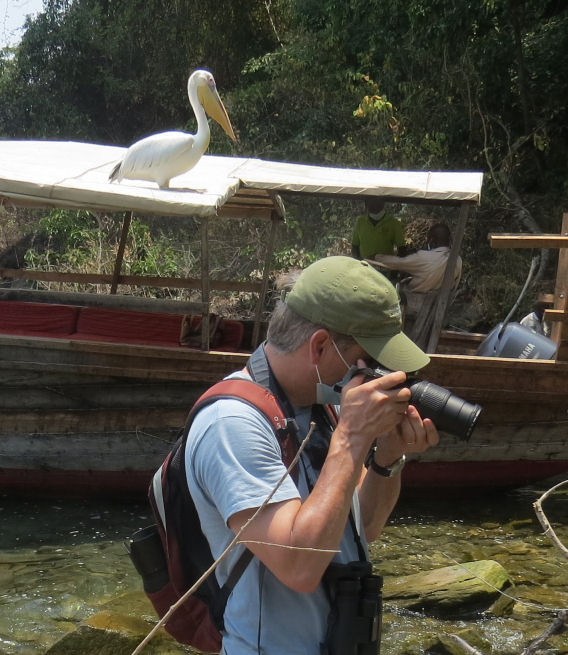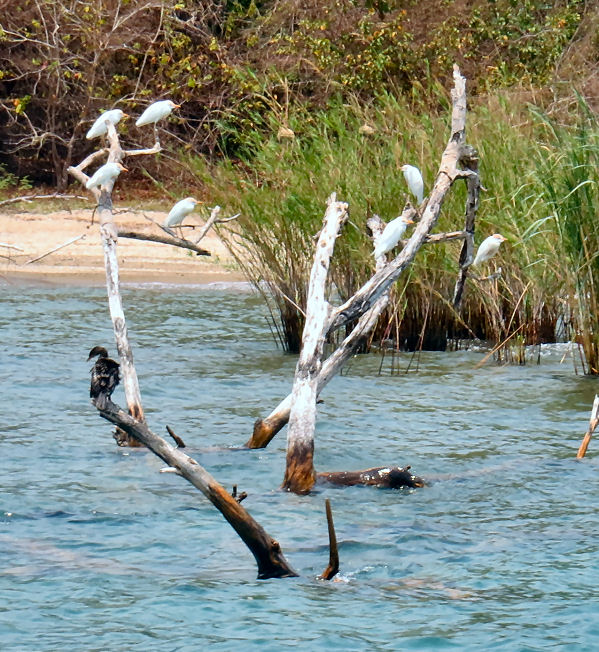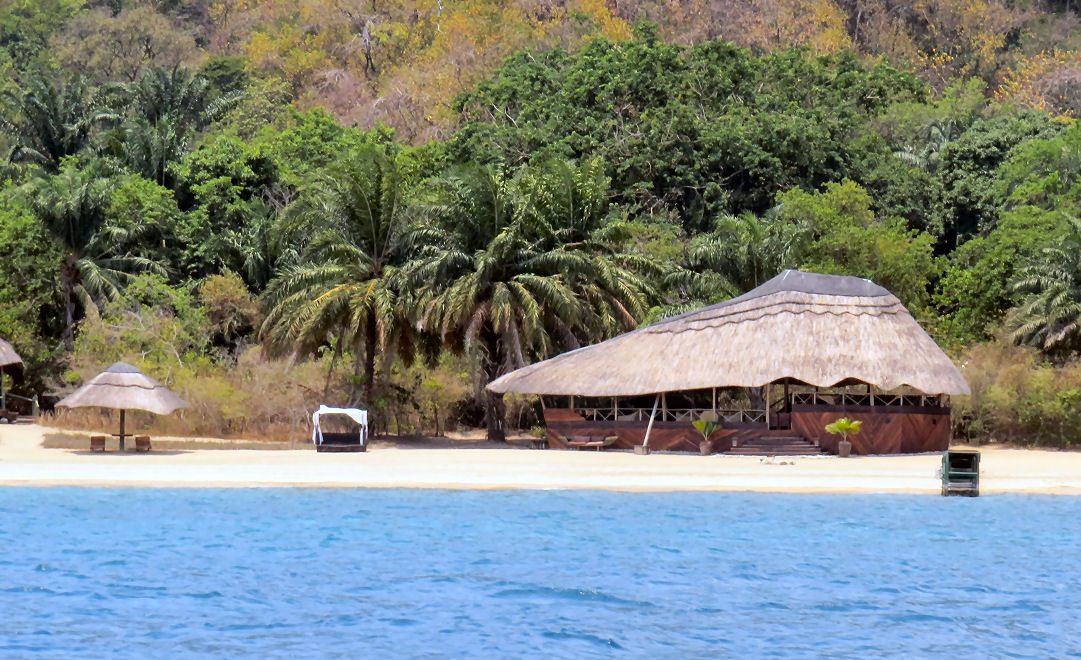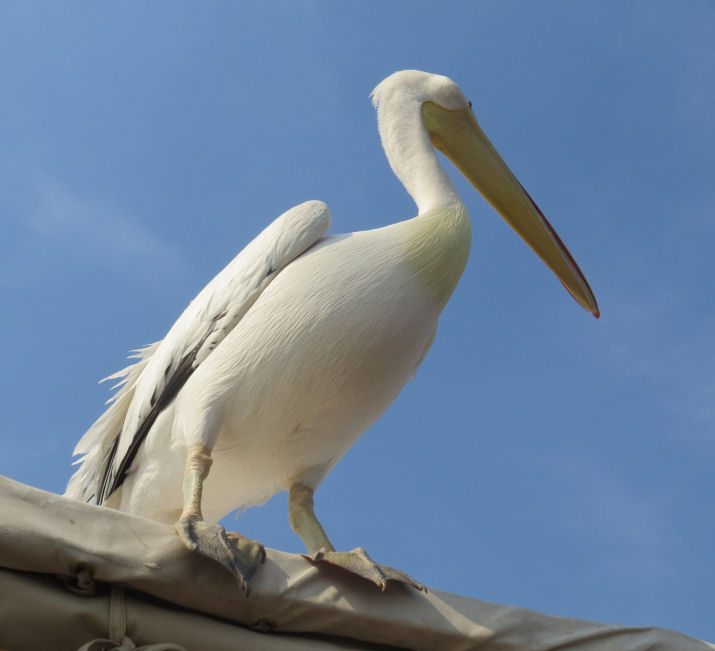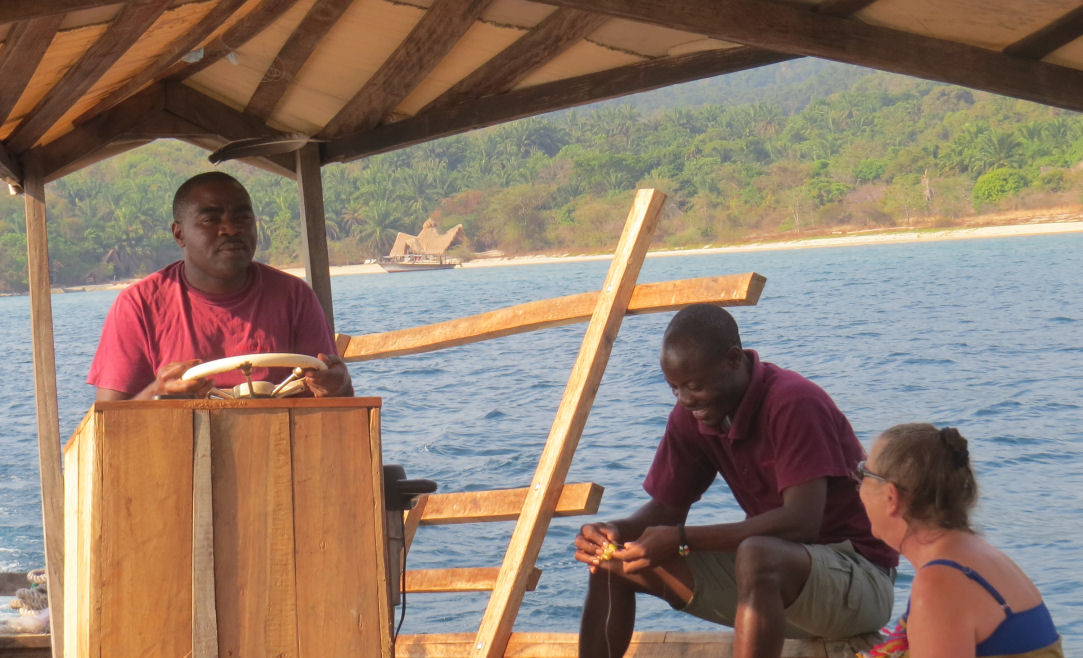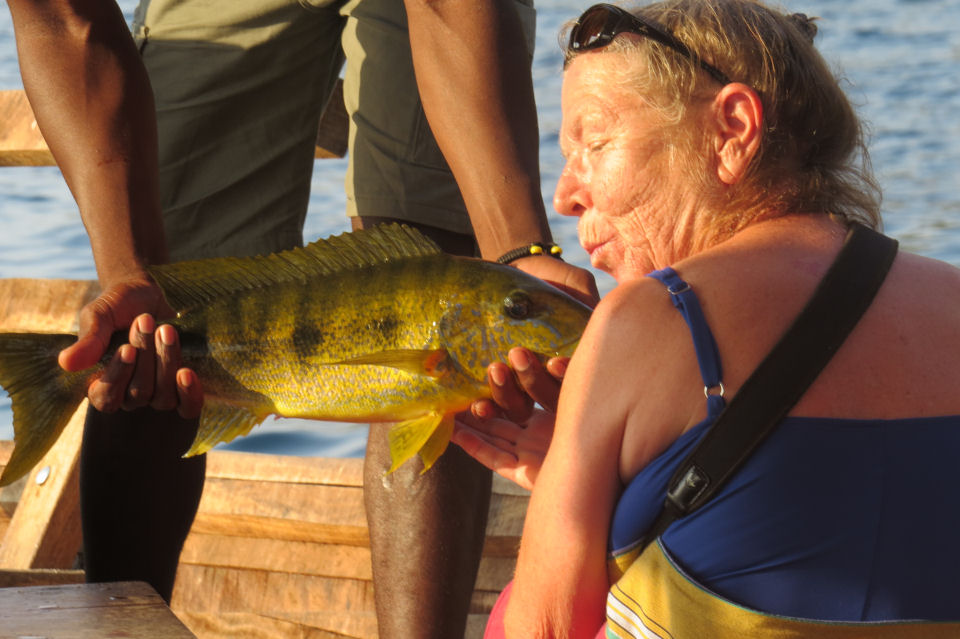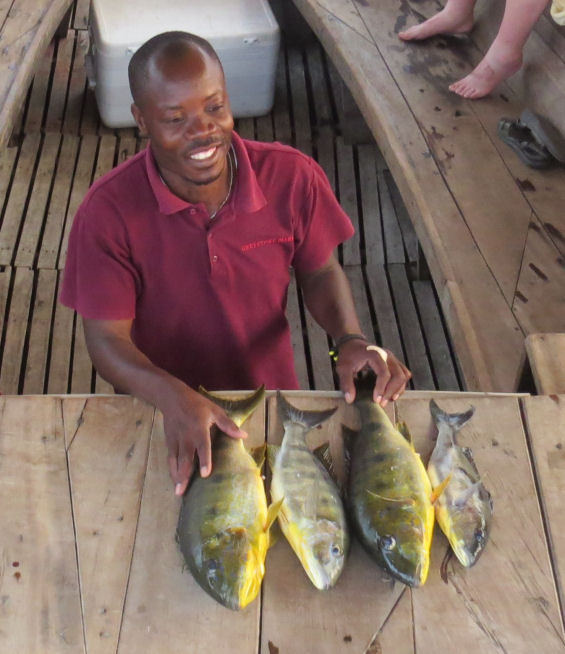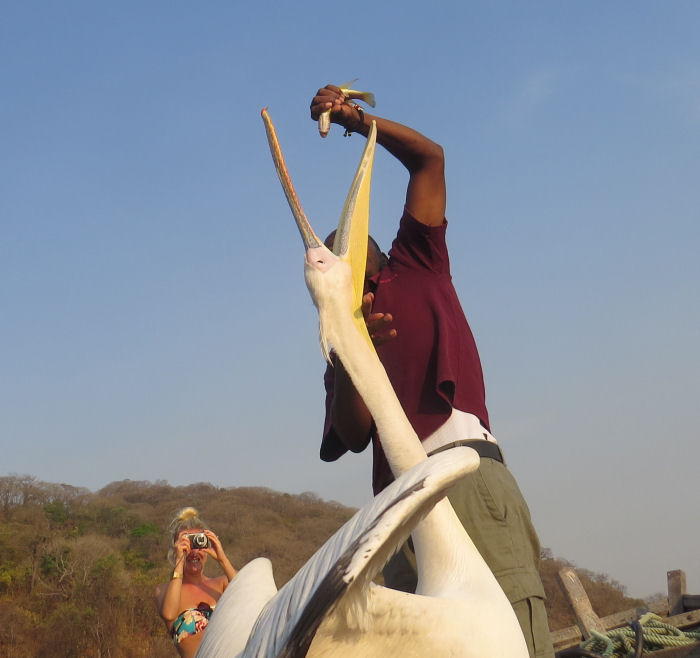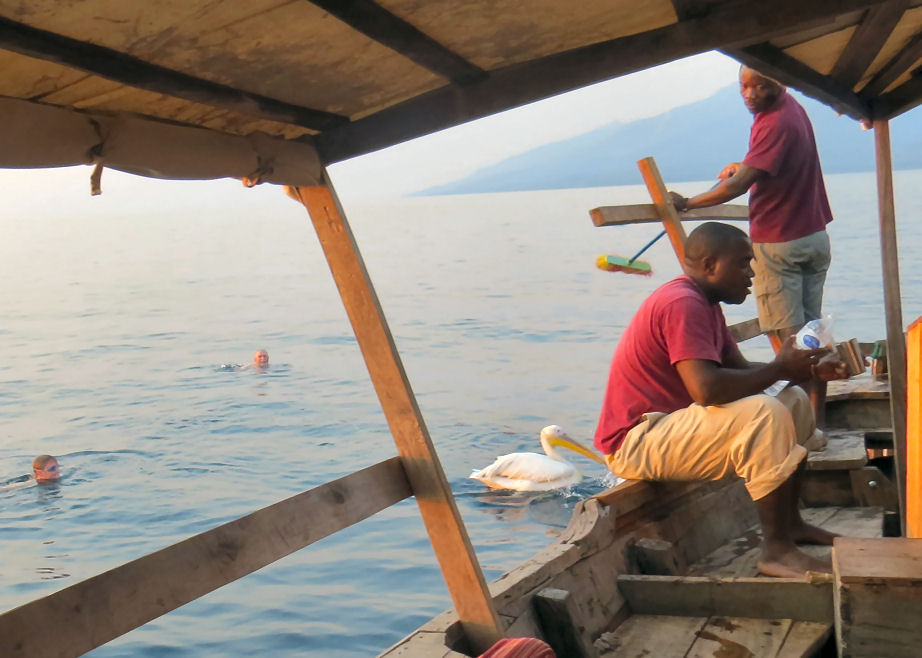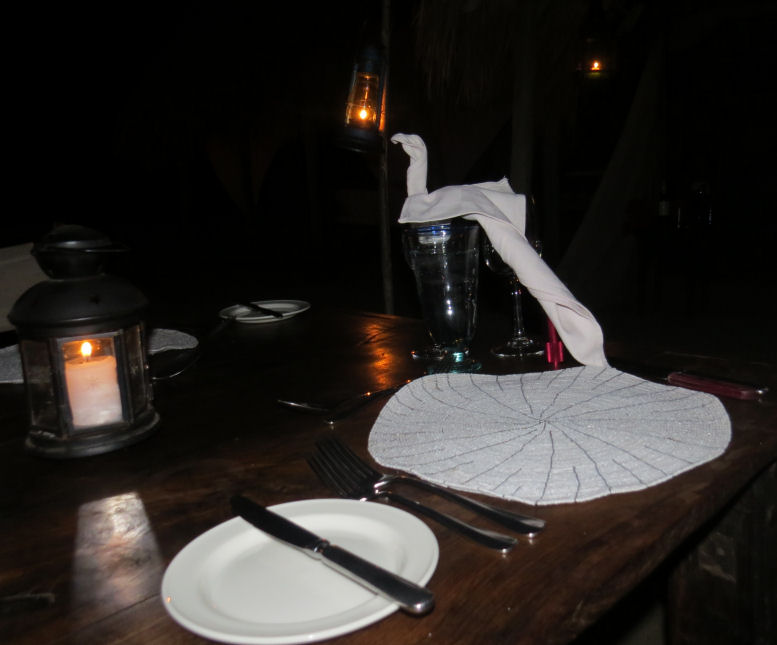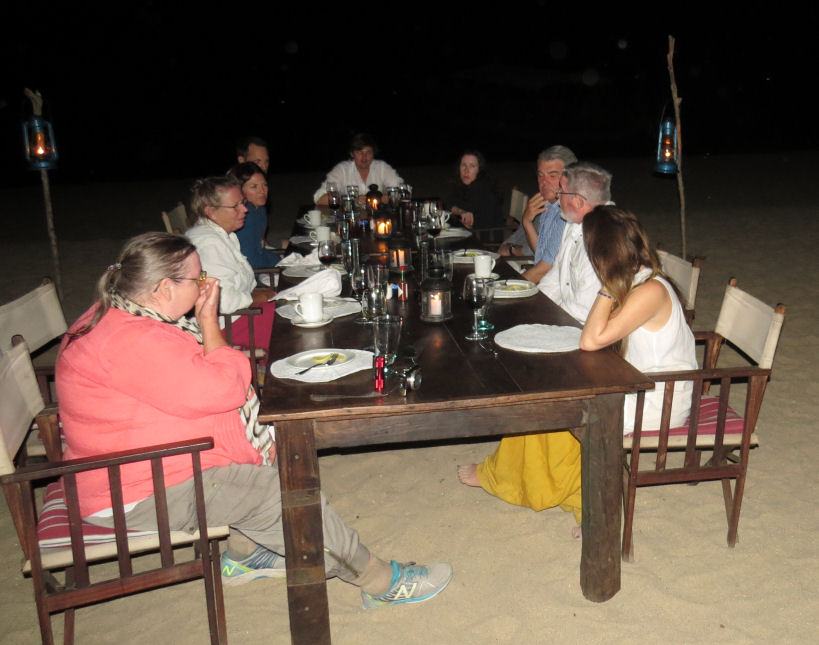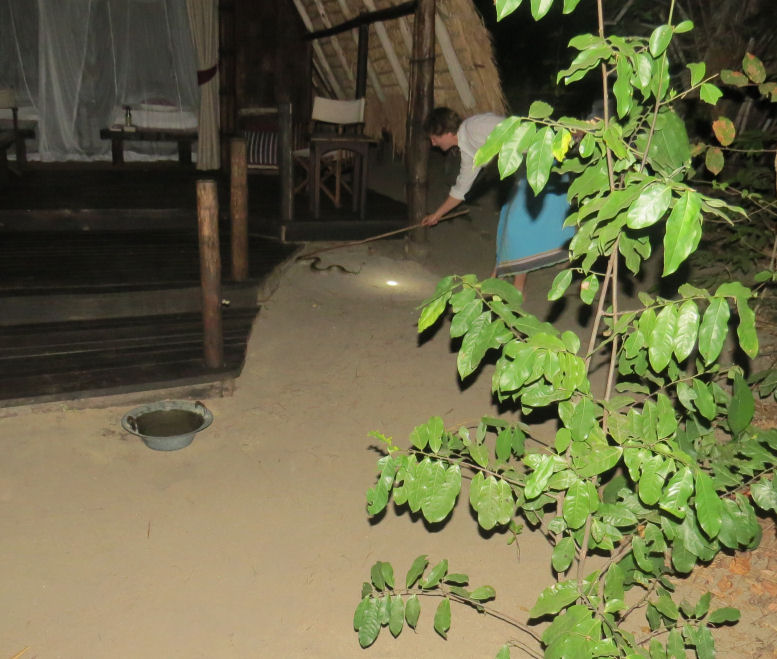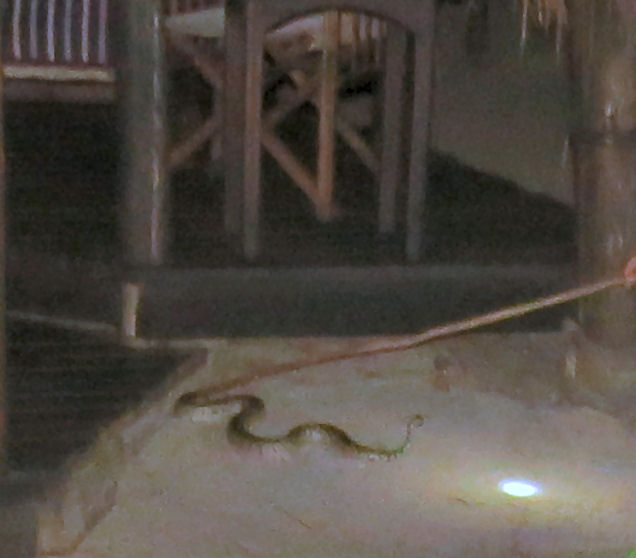Consumption of the morning coffee was much more trannquil than it had been on the previous day. A few monkeys were visible way up in the trees, but they seemed completely uninterested in the cookies. Incidentally, I liked the moons better than the stars on this last full day of the safari adventure.
At breakfast we learned that Scott's tripod technique did not work. Cam promised that he would try to set up the motion-detector equipment for our group's last night in Mahale.
I came to realize that the camp in Mahale employed an odd 4-3 rhythm. Guests who arrived on Thursday, as we did, departed on Monday after four nights. Guests who arrived on Monday left on Thursday after only three nights. These guests only were allowed two days of chimping instead of three. If I had only been allowed to visit the chimps twice, and the first time was like our first excursion, I would have been sorely disappointed. Also, the charge was by the night. Paying for four nights provided three chimp excursions; paying for three nights provided only two. The rate for the shorter stay was 12.8 percent higher in terms of chimping, which is the main reason that people come to Mahale. In short, I was very happy that Ted at Africa Odyssey had the foresight to book us for a Thursday arrival, not a Monday arrival.
At breakfast in the large central banda the big news was that there had apparently been a leopard in camp overnight. It left some clear footprints. That might well be the explanation for the dearth of monkeys awaiting the morning coffee and biscuit delivery.
When we asked Kate and Cam if we would be safe in the bandas with a leopard on the prowl within the campsite, they assured us that the mosquito nets around the beds were guaranteed to protect us against anything up to and including a rogue bull elephant. This made all of us feel a lot better.
Sue had heard that Betty had seen a rather large snake behind our banda the previous day. Cam declared that the probability that it was a Gaboon viper[1] was hardly worth considering, perhaps one chance in four. Kate and Cam also assured us that the camp was perfectly safe. In fact, no guests had been lost to animal attacks in several weeks at Greystoke.
So we finished our breakfast and waited around with Big Bird for news of the chimps. It was a long wait. At about 11:00 Matius announced that the chimps had in fact come down to the lake and had been seen licking the rocks along the shore. Everyone was surprised by this news. The chimps had done this a week earlier, and the behavior was unusual enough that no one expected it to be repeated so quickly. Some have speculated that they do this to supplement their diets with needed minerals, but this is pure speculation. How would they know what they were missing, and how would they know which rocks contained these minerals? At any rate this meant that our hike to see them would be measured in steps, not miles.
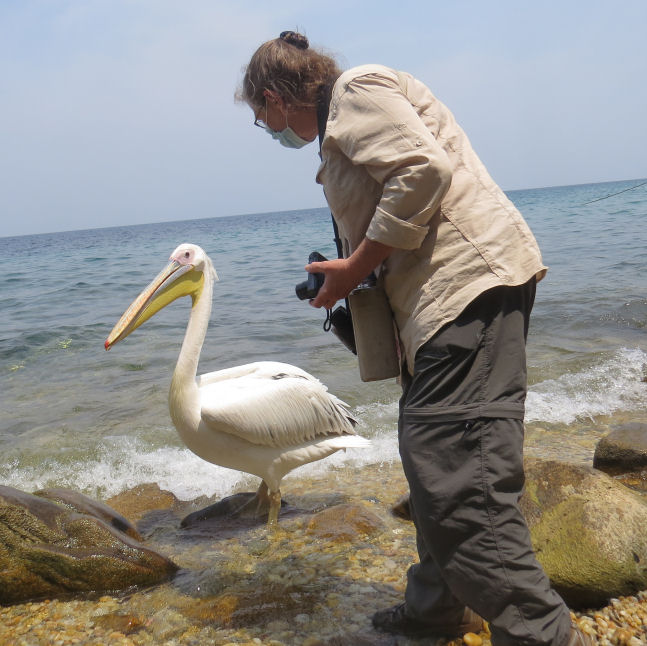
All of us except Sue clambered enthusiastically aboard the dhow. I am not sure why she decided to skip this outing, but her spot was not vacant. For the first time Big Bird decided to join one of our chimping excursions. The captain directed the boat north a little ways, and everyone clearly saw the chimps on the rocks by the shore. When the captain began to back the boat in toward the shore, however, the chimps, who appeared to be mostly skittish females, retreated back into the brush.
The captain headed the boat a little to the south, that is, back toward the camp, where some male chimps were bent over the rocks. This time we successfully landed and disembarked with our surgical masks already in place. The chimps held their ground and kept on licking.
These lickers were mostly males, and they were not at all disturbed by close contact with a bunch of masked humans. However, Big Bird almost immediately took flight and landed right next to one of the chimps. Big Bird frightened the chimp,[2] and the chimp's reaction frightened Big Bird. Matius sprung into action. He grabbed Big Bird around the waist and hauled him back up into the dhow. Fortunately, Big Bird learned his lesson and thereafter remained peacefully at his usual perch on the canvas top of the dhow.
Meanwhile we ventured ashore and split up into two groups. Our group, led by Matius once again, never ventured more than a few yards from the vessel. The other group went down the shore a little farther.
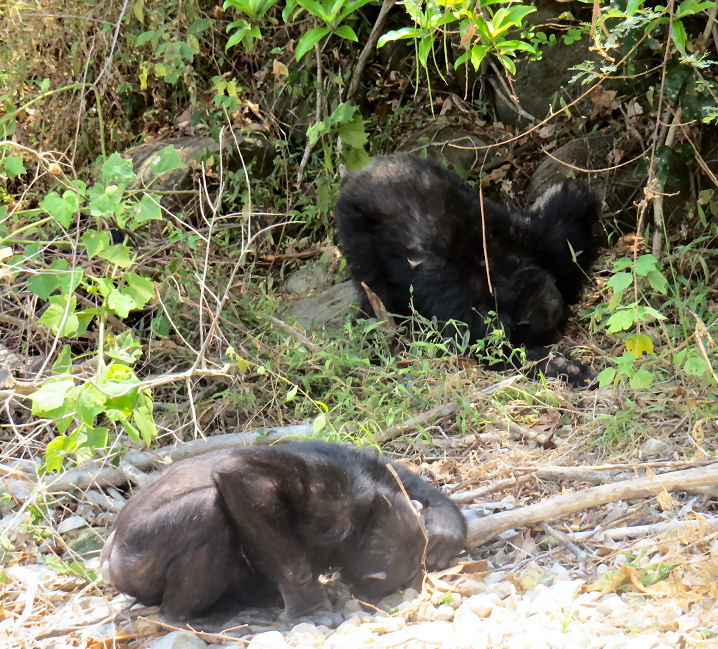
We could hear and see a fair amount of activity going on in the brush a small distance from the shore. Matius whispered to us that Primus, the alpha male, was having trouble maintaining order. Two of the females were in estrus simultaneously, and he needed to keep his eye on both of them at the same time.
The photos that I took of the chimps in the brush were not very good. The camera repeatedly auto-focused on vegetation, not the chimps. I was ignorant of how to override the computer's judgment.
The males that came down to the rocks licked them for long periods of time. We were quite close to them, but the photographic opportunities were not very good. In the first place the chimps did not do much. I am not sure what pleasure they received from kissing and licking the rocks, but once they got a liplock on one of the stones, they did not change their positions for quite a while.
The other problem had to do with the location. It was easy for the chimps with their low centers of gravity to move around on the rocks. It was a lot more difficult for a sixty-seven-year old man with a camera to do so. We were constantly getting in one another's way and struggling to make small adjustments to our positions without disturbing the chimps or violating the ten-meter rule. It was awkward.
Still, the main objective was to watch the chimps and to learn from them, not to take photos that the National Geographic would be clamoring for. It was a lot of fun to be so close to them, and every so often one of them would do something interesting.
The one down side of this day's excursion was that for the first and only time on the entire vacation I was bitten by insects. I got a half-dozen or so bites on my legs. They itched a little for a couple of days, but I was not tormented the way that Sue and Tom were throughout the entire trip. Tom declared that this was the worst thing about Africa.
I am not sure why I was bitten on this particular outing. Kate had warned us that there were more insects by the edge of the lake. I did not notice any, but they must have been there.
I also suspect that perhaps the permethrin that I sprayed on the socks that I wore that day may have been washed out. I did not keep track of how many times I had had each pair of sock washed, and there was no way of knowing how they had been washed. A permethrin treatment was supposed to last two weeks, and I had sprayed my clothes almost two weeks earlier.
On the return voyage we say a cormorant, a grey heron, and some cattle egrets perched on branches that protruded from the water in the water.
We were all pretty hungry when we reached the camp. Lunch was some kind of pizza. I handed out my "WAVE uh duh" cards to everyone and told them a little about this project. I said that I hoped to have it finished during the first part of November. I am writing this on November 1, 2015. My goal now is to have it posted by November 3.
The five New Englanders opted to spend the last afternoon on the boat. The fishing part of the excursion was remarkably successful. Betty and Tom hauled in fish after fish. Matius evidently had found just the right key for chanting "Here, fishy, fishy, fishy!" Four yellow-bellies were clearly keepers. Big Bird was fed five of the smaller variety.
In a tree on the shore we had spotted an African fish eagle. Betty asked Matius if we could feed the last fish to the fish eagle. Big Bird argued strongly against such a radical notion, but Matius agreed. He held the fish by the tail and beat its head against the side of the boat several times. By the time that he lifted his arm to throw the fish, the eagle had already taken flight.
Matius threw the fish about twenty yards out on the port side of the boat, toward the shore. Big Bird seemed to be concentrating on the fish and oblivious of the eagle. The two avian predators reached the touchdown point in the water less than a second after the fish did. Big Bird was startled by the eagle's sudden appearance and failed to make an effective grab with his beak. The eagle's talons also missed the fish, which quickly sank into the water. Maybe the water revived it, and it lived happily ever after. Who knows?
Insulted that Matius had thrown the fish to the eagle, Big Bird spent the rest of the voyage looking for someone to poop on. By this point, however, we were all wise to his tricks.
Back in camp I noticed that staffers were moving the dining tables out onto the beach in front of the big banda. Evidently supper would be served under the stars.
Hannah surprised everyone by wearing her leopard-spotted outfit to the reception and supper. It probably would have caused consternation among the chimps.
At the pre-supper reception the group that spent the afternoon on the lake had a lot of fun telling the other guests about the overwhelming success of the fishing expedition and the confrontation between Big Bird and the fish eagle. What an exciting day the young pelican had had! He had experienced a face-to-face encounter with a chimpanzee and a fishing contest with an eagle, all in one day. He did not really prevail in either matchup, but neither was he bested. I bet that he had some interesting dreams that night.
The last few seconds of the reception were magical. The bell was rung to announce that supper was ready. Immediately Butati began making chimp calls, and Matius answered him. To my untrained ears their renditions sounded remarkably accurate. They certainly were loud. At the end everyone was laughing and applauding.
Supper was extremely interesting. Everyone seemed to be in a splendid mood. I assured the California foursome, who were headed to Serian Camp in the northern Serengeti the next day, that they would see plenty of hippos there.
At some point Jeff came running up to the table. He announced that he wanted to register a complaint because there was a large snake by his banda. Most of us ran to the banda to have a look. Cam wielded a walking stick and went right up to the wiggling reptile. It was perhaps four or five feet in length. Since it had a pretty big lump in it, Cam deduced that it was a python.
By some miracle I had the presence of mind both to bring my camera and to lift up the flash. I snapped a reasonably good photo of the snake on the end of Cam's stick. This photo was easily my proudest accomplishment of the entire vacation.
Many people, including Sue, stayed for the campfire, but the sixty-seven-year old man was too bushed. He took the flashlight and returned to the banda. Just outside the banda he surprised a dark critter about a foot long with short legs and a bushy tail about the same length as its body. Unfortunately, the senior citizen lacked the dexterity to work the flashlight and the camera at the same time. Even so, it was exciting to see an unknown animal up close, if only for a few seconds.
[1] Orson Bean always called this snake the "dreaded Gabon viper," but Gaboon is preferred even though the country is usually called Gabon. Its official name is the Gabonese Republic.
[2] Big Bird could be very scary when he flew at you. A great white pelican's wingspan can be up to almost twelve feet! On the other hand, if the chimp responded with violence, he could probably tear Big Bird limb from limb in a minute or two. A full-grown male pelican weighs only twenty to thirty pounds. The chimps, especially the males, are very strong, and Big Bird had no real defenses at all. His beak looked awesome, but it was designed for holding fish, not fighting.
